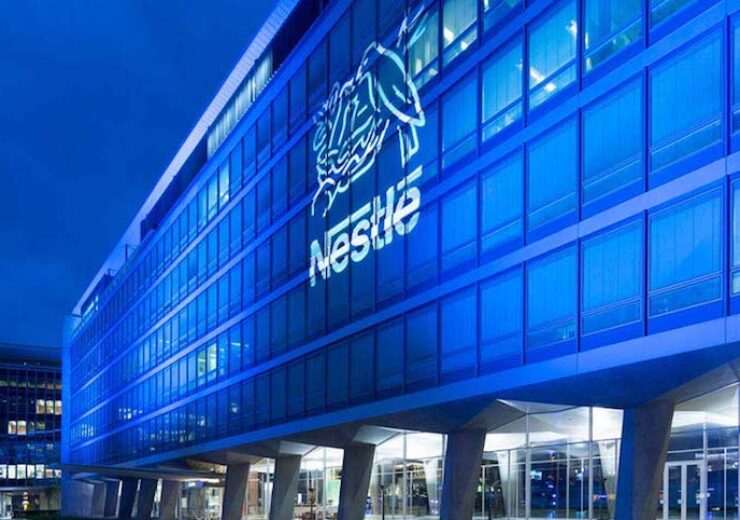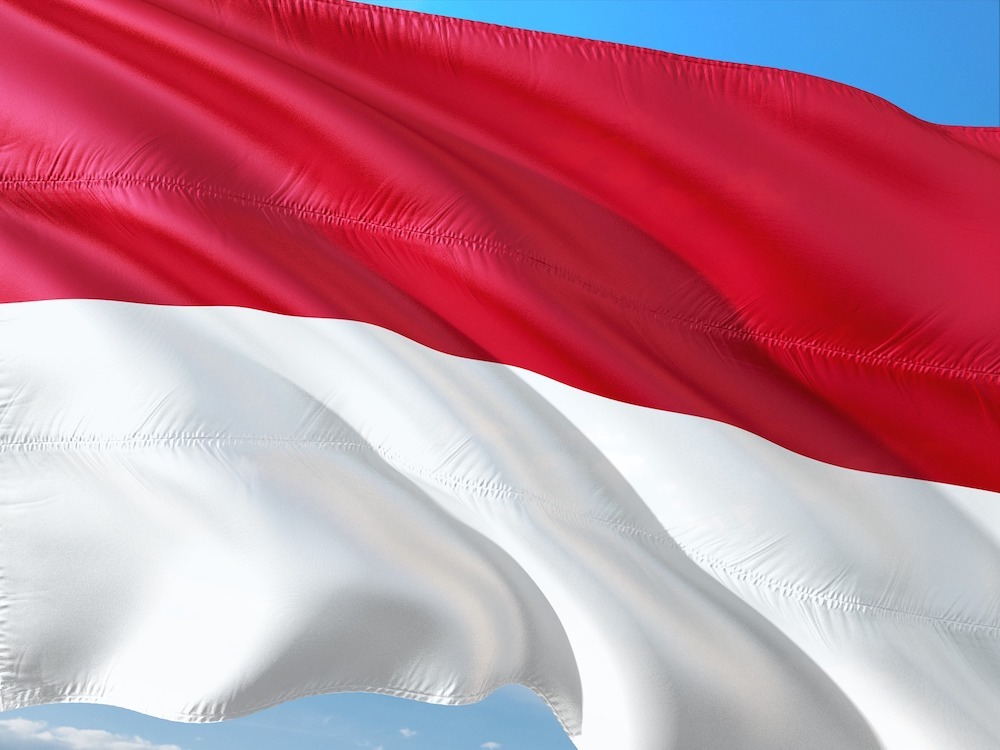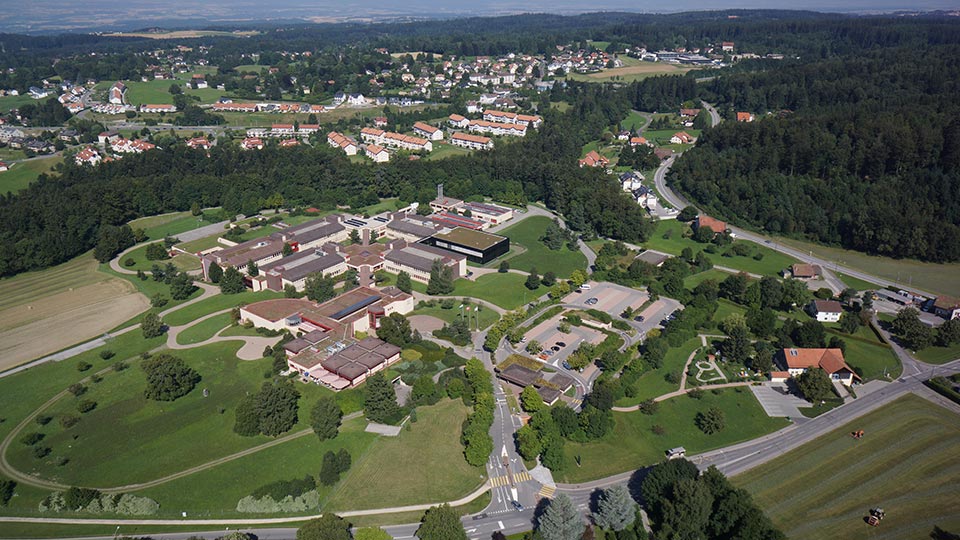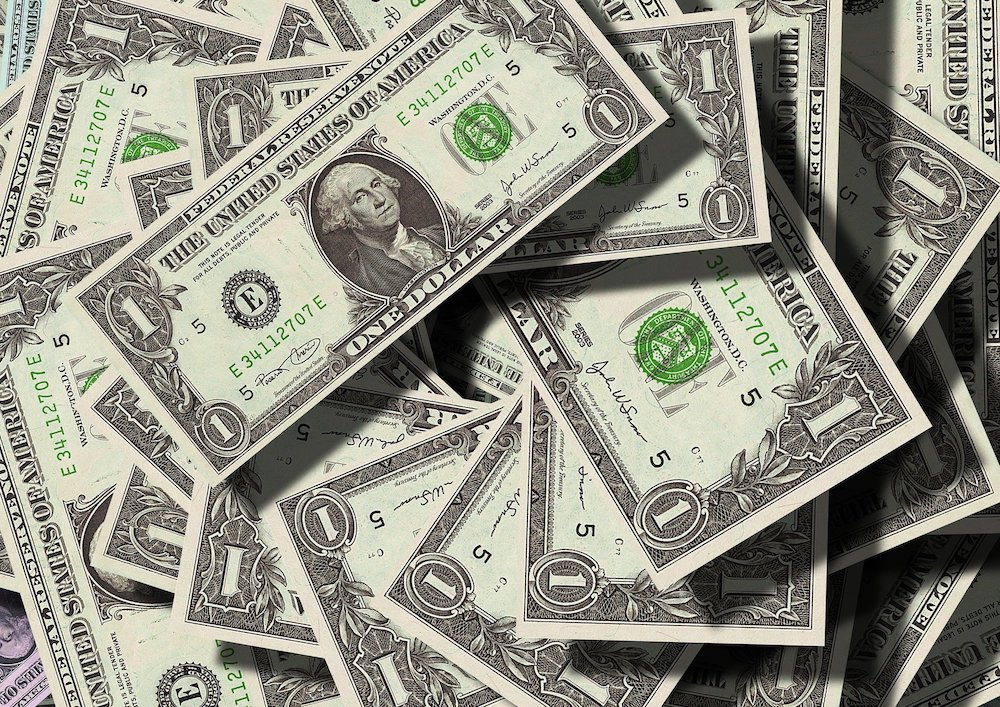In September 2019, Nestle launched its Institute of Packaging Sciences to develop more sustainable packaging products

Nestle aims make 100% of its packaging recyclable or reusable by 2025, and reduce its use of virgin plastics by a third over the same period (Credit: Nestle)
Nestle has unveiled new plans to improve and develop more sustainable packaging, adding to the 87% of its packaging that is already recyclable or reusable.
It’s part of the Swiss-based food and drinks multinational’s aim to make 100% of its packaging recyclable or reusable by 2025, and reduce its use of virgin plastics by a third over the same period.
To do this, the company has announced a series of initiatives that include a $30m investment to increase food-grade recycled plastics in the US, a refillable system for pet food in Chile and a “first-of-its-kind” recyclable paper for its Maggi bouillon cubes in France.
Nestle’s global head of sustainable packaging Véronique Cremades-Mathis said: “We have made strides in our transformative journey towards a waste-free future, but we know that we have more work to do.
“As the world’s largest food and beverage company, we’re committed to putting our size and scale to work to tackle the packaging waste problem everywhere we operate.”
Nestle’s three-pillar approach to tackle plastic packaging waste and develop sustainable packaging
In January 2019, Nestle outlined its three-pillar approach as to how it aims to tackle the plastic pollution problem.
Its first pillar focuses on developing new paper packaging, which includes the company looking to transition to paper packaging across a range of formats.
As part of this, the firm developed a recyclable paper wrapper for its Smarties sharing block chocolate bar and a single material pouch for its Gerber and Piltti baby food products.
Alongside this, its Nespresso coffee brand introduced new capsules made with 80% recycled aluminium, and doubling the amount of rPET used since 2019 across its US still water portfolio to 16.5%.
Nestle’s second pillar is titled “shaping a waste-free future”.
Part of this includes its partnership with charity Project STOP, working to create a sustainable waste management system and reduce ocean plastic pollution in Indonesia.
Alongside this, Nestle Philippines has reached plastic neutrality – meaning it has collected and co-processed the equivalent amount of plastic contained in the products it has sold, reducing the flow of plastic into landfills and oceans.
It has also started a trial to collect, sort and process soft plastic in Australia, while also scaling-up reusable and refillable options for its Petcare and soluble coffee products.

Furthermore, the firm is an advocate for the design and implementation of affordable extended producer responsibility (EPR) schemes, identifying 20 countries where the company will support recycling rates and waste management infrastructure.
The third and final pillar of Nestle’s strategy to tackle plastic pollution focuses on the need to drive behavioural changes of consumers.
As part of this work, the firm is rolling out a sustainable packaging education and training programme for more than 290,000 of its employees, to accelerate behaviour change and help the company meet its packaging objectives.
It has also launched a digital platform to help teach consumers in Italy how to properly dispose of packaging waste.
Alongside this, the firm’s coffee capsule brand Nescafe Dolce Gusto has set up a consumer education campaign promoting recycling in Germany and Mexico, while Nestle as a whole is looking to drive positive change through school programmes such as the Tunuyan Verde project in Argentina.
In addition to the three pillars, the company has announced it is seeking to identify and support innovative solutions through its Nestle Creating Shared Value Prize, which launches on 30 September.
The award will provide the winners with 250,000 Swiss francs (CHf) ($272,412) in grants for system-change innovations such as alternative delivery systems, as well as ground-up solutions to tackle plastic waste.
What is Nestle’s Institute of Packaging Sciences?
The majority of development and testing of more sustainable packaging materials carried out by Nestle in the past year has been driven by the company’s Institute of Packaging Sciences.
Launched in September 2019, the institute has around 50 scientists conducting research to ensure the safety and applicability of new materials, with outcomes including new refillable or reusable systems, simplified materials, high-performance barrier papers and the introduction of recycled content to Nestle’s packaging.
Speaking at its inauguration, Nestle CEO Mark Schneider said: “Our vision is a world in which none of our packaging ends up in landfill or as litter.

“To achieve this we introduce reusable packaging solutions and pioneer environmentally-friendly packaging materials.
“Furthermore, we support the development of local recycling infrastructure and deposit schemes to help shape a waste-free world.
“The Nestle Institute of Packaging Sciences enables us to create a strong pipeline of sustainable packaging solutions for Nestle products across businesses and markets.”
To progress this work, the institute collaborates with more than 180 packaging experts in the company’s global research and development network, as well as with research institutions, start-ups and suppliers.
Nestle invests $30m in Closed Loop Leadership Fund
Nestle also announced this week that it has made a $30m investment in the Closed Loop Leadership Fund, a private equity fund of the circular economy to lead the shift from virgin plastics to the use of food-grade recycled plastics in the US.
It’s the first to utilise the packaging venture fund established earlier this year by Nestle, the company’s CHf2bn ($2.1bn) to accelerate the development of innovative sustainable packaging solutions.
Cremades-Mathis said: “This investment is one of many solutions we are exploring to address the global plastic waste challenge.
“It will help create a more sustainable recycling system and, at the same time, assist us in achieving our commitment to reduce our use of virgin plastics by one third by 2025.
“This is particularly important as increasing the use of recycled plastics could substantially reduce the environmental impact of our packaging.”
The Closed Loop Leadership Fund was created to acquire companies along the value chain to build a circular supply chain.

It invests in companies that aim to increase recycling rates in the US and keep valuable materials in packaging supply chains by integrating and improving all the aspects of them.
Nestle’s investment will be used for the financing of the Closed Loop Leadership Fund’s acquisition of “well-established, best-in-class companies” advancing the circular economy in the US.
Nestle USA chairman and CEO Steve Presley said: “It is important that we do our part to help keep recyclable materials out of landfills, and increase recycling rates in the US, and this investment is a significant move in that direction.
“It is also a critical step in our effort to secure access to high-quality, food-grade recycled plastics which can be converted into new packaging material for use across our product portfolio.”
Closed Loop Partners CEO Ron Gonen added: “Nestle’s investment is a significant commitment to help modernise, optimise and capitalise circular economy infrastructure in the US and harness innovative technologies to keep materials in manufacturing supply chains.
“In addition to the investment, Nestle has committed to creating an end-market for the food-grade recycled plastics processed through the companies we acquire.
“This will enable us to fully close the loop on valuable materials.”
Through its investment, Nestle will have access to recycled plastics feedstock processed by companies the fund will invest in, to achieve greater volumes of food-grade recycled plastics for its packaging.
